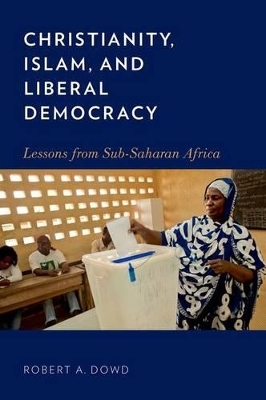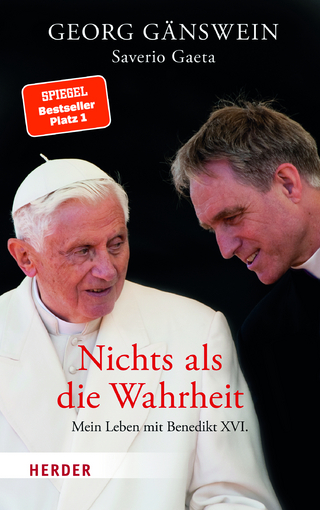
Christianity, Islam, and Liberal Democracy
Lessons from Sub-Saharan Africa
Seiten
2015
Oxford University Press Inc (Verlag)
978-0-19-022521-6 (ISBN)
Oxford University Press Inc (Verlag)
978-0-19-022521-6 (ISBN)
Drawing from research conducted in Nigeria, Senegal, and Uganda, Christianity, Islam, and Liberal Democracy offers a deeper understanding on how Christian and Islamic faith communities affect the political attitudes of those who belong to them.
Drawing from research conducted in Nigeria, Senegal, and Uganda, Christianity, Islam, and Liberal Democracy offers a deeper understanding on how Christian and Islamic faith communities affect the political attitudes of those who belong to them and, in turn, prospects for liberal democracy. While many analysts have thought that religious diversity in developing countries is most often an obstacle to liberal democracy that creates political instability, the book concludes just the opposite. Robert A. Dowd draws on narrative accounts, in-depth interviews, and large-scale surveys to show that Christian and Islamic religious communities are more likely to support liberal democracy in religiously diverse and integrated settings than in religiously homogeneous or segregated settings. Religious diversity, in other words, is good for liberal democracy. In religiously diverse environments, religious leaders tend to be more encouraging of civic engagement, democracy, and religious liberty. The evidence, Dowd argues, should prompt policymakers interested in cultivating religiously-inspired support for liberal democracy to aid in the formation of religiously diverse neighborhoods, cities, and political organizations.
Drawing from research conducted in Nigeria, Senegal, and Uganda, Christianity, Islam, and Liberal Democracy offers a deeper understanding on how Christian and Islamic faith communities affect the political attitudes of those who belong to them and, in turn, prospects for liberal democracy. While many analysts have thought that religious diversity in developing countries is most often an obstacle to liberal democracy that creates political instability, the book concludes just the opposite. Robert A. Dowd draws on narrative accounts, in-depth interviews, and large-scale surveys to show that Christian and Islamic religious communities are more likely to support liberal democracy in religiously diverse and integrated settings than in religiously homogeneous or segregated settings. Religious diversity, in other words, is good for liberal democracy. In religiously diverse environments, religious leaders tend to be more encouraging of civic engagement, democracy, and religious liberty. The evidence, Dowd argues, should prompt policymakers interested in cultivating religiously-inspired support for liberal democracy to aid in the formation of religiously diverse neighborhoods, cities, and political organizations.
Robert A. Dowd is Associate Professor of Political Science at the University of Notre Dame.
1. Introduction: Christianity, Islam, and Liberal Democracy ; 2. Time, Place, and the Application of Religion to Politics ; 3. The Role of Religious Leaders ; 4. The Impact of Religious Communities ; 5. A Closer Look at Nigeria, Senegal, and Uganda ; 6. The Curious Case of Nigeria ; 7. Important Lessons and New Questions ; Appendix A ; Appendix B ; Bibliography ; Index
| Erscheint lt. Verlag | 3.9.2015 |
|---|---|
| Zusatzinfo | 17 illus. |
| Verlagsort | New York |
| Sprache | englisch |
| Maße | 157 x 234 mm |
| Gewicht | 635 g |
| Themenwelt | Religion / Theologie ► Christentum ► Kirchengeschichte |
| Sozialwissenschaften ► Politik / Verwaltung ► Politische Systeme | |
| Sozialwissenschaften ► Politik / Verwaltung ► Politische Theorie | |
| ISBN-10 | 0-19-022521-1 / 0190225211 |
| ISBN-13 | 978-0-19-022521-6 / 9780190225216 |
| Zustand | Neuware |
| Haben Sie eine Frage zum Produkt? |
Mehr entdecken
aus dem Bereich
aus dem Bereich
von Athanasius bis Gregor dem Großen
Buch | Softcover (2024)
C.H.Beck (Verlag)
12,00 €
eine Geschichte der christlichen Kunst
Buch | Hardcover (2024)
C.H.Beck (Verlag)
32,00 €


